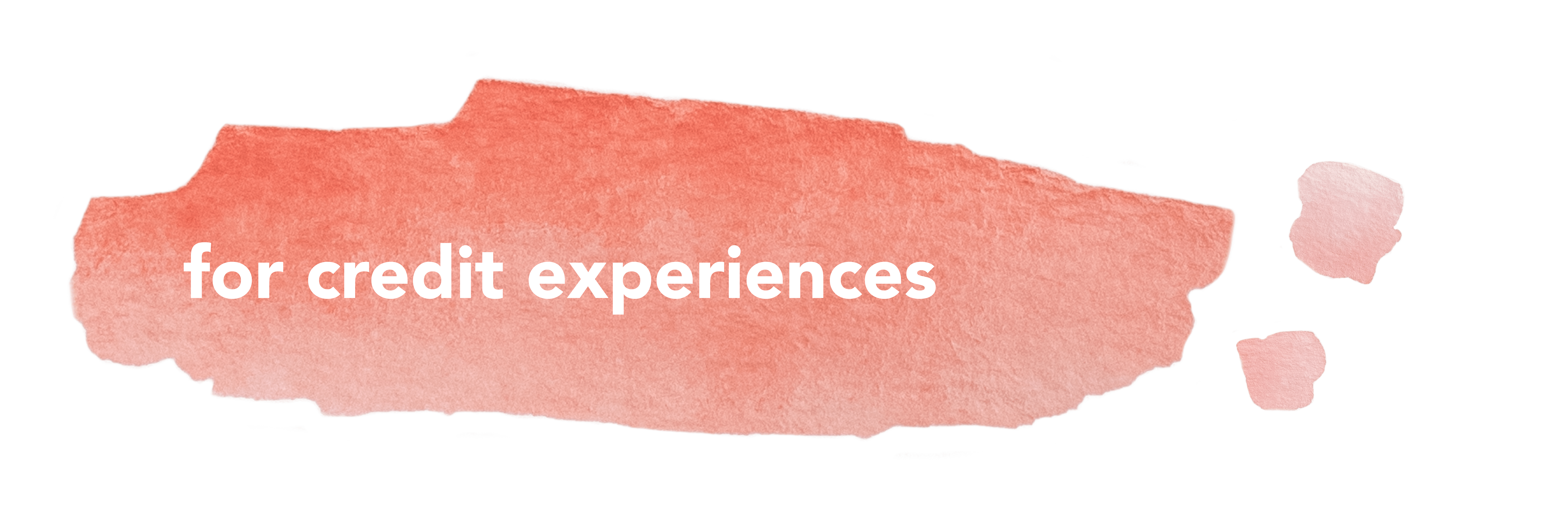

Student engagement is the core of the Dr. Keiko Miwa Ross Student Farm. We support academic experiences for students and faculty across all colleges in both individualized and course-based projects.
For-Credit Internships
Students seeking for-credit internships are welcome to work with the Student Farm. These internships can fulfill requirements for minors such as the Sustainability Leadership Minor, Civic and Community Engagement Minor, Food Systems Minor, and other related programs.
Students can work on the farm as part of the production team to learn the ins and outs of production, harvest and marketing, or they can develop a project with the farm tailored to each person’s interests and area of study. The sky is the limit!
If you are interested in learning more about for-credit internships, contact Leslie Pillen at lrp143@psu.edu.
Capstone Projects
Students are invited to work with our team to develop projects to meet 295, 296, 495 and 496 independent study, immersive experience requirements, research or thesis credits. Browse past student projects below and contact Leslie Pillen at lrp143@psu.edu for more information.
Through these credit-based experiences, students can gain hands-on experience on the farm and/or develop an independent project.
Students may also be able to apply for funding through Penn State undergraduate grant opportunities, including the Erikson Discovery Grant, the Student Engagement Network Grant and other college-based grant programs.
Are you interested primarily in gaining hands-on experience on the farm/in the greenhouse, or in some other type of engagement (such as a research project, events planning, special project etc.)? We ask students who are interested in completing internships with the Student Farm to submit application materials so we can better get to know you, and to help answer some of these questions. Please send in the following:
-
- Cover Letter that explains your interest in working with the Student Farm, what specific experiences you hope to engage in, and how it relates to your educational and/or professional goals
- Resume that includes your relevant coursework
- Screenshot of your course schedule for the intended semester
These don’t need to be super polished, it’s not a formal interview process or anything. This just helps us understand where you could fit in best in the overall program. You can send these materials to Leslie Pillen at lrp@143@psu.edu. We’ll also want to meet to confirm the plan for what your immersive experience will include.
Developing a Student Farm Tour Guidebook
Student: Carissa Heine, Nutrition
Civic and Community Engagement Minor Capstone
As a CVCM minor, Carissa spent a semester developing educational modules that could be used during classroom presentations or tours of the Student Farm, including developing a tour guide and tour map.
Small-Scale Cricket Production for Human Consumption
Student: Alex Curtze, Environmental Resource Management
Independent Study
Concerned with GHG emissions and the agricultural uses of land to raise animals for consumption, Alex was inspired to find alternative, sustainable protein sources for Earth’s growing population. Alex raised crickets in different environments to study the most efficient methods of production.
Strengthening the Student Farm CSA
Student: Alexa Wilhelm, Community, Environment, and Development
Capstone
Alexa Wilhem was interested in the Student Farm CSA members’ satisfaction with the program, so she conducted a survey with responses from the members in order to evaluate their needs, in hopes of understanding the audience better.
Leafy Greens in Sustainable Indoor Systems for PSU Dining Commons
Student: Izaiah Bokunewicz, Plant Science
Undergraduate Research Grant
After Izaiah’s prior work with hydroponics through the Student Farm Club, Izaiah analyzed the productivity and flavor of 20 different types of leafy greens in hydroponic production, to determine the most productive and tastiest varieties.
Conservation Biocontrol on the Student Farm
Student: Hayly Hoch, Plant Science
Erickson Discovery Grant
Motivated to implement and demonstrate biological pest management strategies on the Student Farm, Hayly utilized her grant funding to design and establish multiple natural pest habitat sites around the farm during the 2016 summer growing season.
Natural Dye Plant Production
Student: Eva Bonta, Geography
Independent Study for GN requirement
After hearing about the experimental fiber plants the Student Farm was growing, Eva Bonta had an idea to grow crops that could be made into natural dyes and used by students for art, which lead to an exciting class called Sustainable Studio!
Growing Plants with Medicinal and Traditional Value
Student: Taylor Hill, Landscape Contracting
Independent Study
This project is an ongoing one which Taylor established the roots for. He started with 10 medicinal and native plant suggestions and opened it up to collaboration in hopes that others will add their favorite plants too!
Comfrey Compost Tea on the Student Farm
Student: John Boujoukos, Plant Science
For-Credit Internship
John conducted extensive research on the existing literature for how to make compost tea, then created a compost tea preparation and application protocol for interns to follow. John also tested the compost tea on tomatoes, with the hypothesis that it would reduce the incidence of disease.
Engaging the Student Farm Community in Expansion Planning
Student: Ben Chronister, Landscape Architecture
Civic and Community Engagement minor Capstone
In spring of 2019, the Student Farm began active planning for its expansion and permanent home. Ben planned a Community Check-In that hosted 110 people, including students, staff, faculty, administrators and community members. Participants contributed their ideas for the physical farm site and the programmatic opportunities in the expansion.
CSA Participant Food Choices Survey
Student: Amanda Gordineer, Nutrition
Senior Capstone
Motivated to discover if length of participation in the Student Farm CSA correlated with long-term behavior change regarding diet and sustainable food choices, Amanda surveyed past CSA participants to identify the reasons members joined the program and their collective experiences.
Native Plants for Home Landscapes
Student: Deanna Homan, Plant Science
For-Credit Internship Experience
In a partnership project between Shaver’s Creek Environmental Center and the Student Farm, Deanna planned a Native Plant Sale with seven varieties of perennial native plants. She raised more than 400 native seedlings for sale, and developed educational materials to accompany the plants.
Food Systems Minor
The College of Agricultural Sciences and the College of Health and Human Development offer a Food Systems minor for students interested in agricultural productivity and sustainability, increasing access to affordable, healthy food and food product innovation. The minor gives students the knowledge and hands-on skills they need to become leaders in the food system.
There is a related internship requirement for the Food Systems minor, which could be met by applying for one of our Student Farm internships.
Learn more about the goals of the Food Systems minor here or the program requirements here.
Class Tours & In-Class Presentations
Instructors looking to bring your class to the farm are encouraged to fill out this short form, and a Student Farm representative will respond via email to finalize plans. Please use the form to specify any topics or demonstrations you want covered during your visit. For instructors asking students to independently volunteer on the farm, please share our volunteer calendar with your class.
For courses asking students to visit the farm to observe or reflect on the space in some way, no notice is needed; we just ask that students visit between dawn and dusk.
To invite a program representative into your class to speak about the program or about food systems sustainability topics, please email Leslie Pillen at lrp143@psu.edu.
Faculty-Led Course Projects
Each semester, we collaborate with courses on projects that support the specific learning objectives of that course, and that also help us achieve our mission. Students gain real-world experience as they work with the Ross Student Farm as their client throughout their project.
Courses from colleges and majors from across the university are invited to participate — not just Ag majors! In the past, we have worked with classes from the College of Communications, the College of Liberal Arts, the College of Arts and Architecture, and more.
If you are interested in collaborating with the farm’s physical space or conceptually and programmatically, please email Darin Ripp at dfr5440@psu.edu. Learn about past projects below.
A Solar-Powered Mobile Produce Cooler and Wash/Pack Station
Faculty Supervisors: Jeffrey Catchmark and Megan Marshall
Course: BE 460/466
Semester: Fall 2017 and Spring 2018
The objective of this project was to design, construct, and test a mobile, solar-powered washing and packaging station, and a mobile, solar-powered, walk-in cooler. The goal was to minimize manual tasks, increase the efficiency of the washing and packaging process, and improve the quality of produce on the Student Farm.
Exploring Food, Energy, and Water Systems
Faculty Supervisors: Erica Smithwick & Jason Kaye
Course: GEOG 510
Semester: Spring 2020
This project aimed to shed light on the current state of Food-Energy-Water systems at PSU-UP and find actions that can foster FEW sustainability in the future. The main methods used in this project were the qualitative analysis of interviews and content analysis of other universities’ sustainability programs.
High Tunnel Crop Rotation Plan
Faculty Supervisors: Heather Karsten & Rob Berghage
Course: PLANT 461
Semester: Spring 2020
The students of PLANT 461 worked in groups to design several projects for the Student Farm. Three groups were formed, each with a different focus area, and were able to practice communication with clients.
Building Capacity for Gleaning Local Produce for Centre County Food Pantries
Faculty Supervisor: Tim Kelsey
Course: CED 475
Semester: Fall 2017
The goal of this project was to create a user-friendly database of local emergency food organizations’ needs that would allow food donors involved in gleaning to better distribute produce to pantries based on their quantity demanded and food type needs.
Grow with the Student Farm Campaign
Faculty Supervisor: Tara Wyckoff
Course: COMM 473
Semester: Spring 2016
Communications majors developed a marketing campaign for the Food Systems minor, with targeted messaging to reach key student audiences.
Farm to Axle, a Student Farm Food Truck Business Plan
Faculty Supervisor: David Lenze
Course: Smeal APEX course
Semester: Fall 2017
Students of the Sapphire APEX Team developed a go-to-market strategy and related business plan for a Student Farm food truck that would serve the University Park campus.
Rooftop Garden Raised Beds
Faculty Supervisor: Kevin Curry
Course: AEE 295
Semester: Spring 2019
AG education professor Dr. Kevin Curry built raised beds and created a crop plan for timed harvests to provide produce for local food banks
Tool Shed Design-Build
Faculty Supervisor: James Kalsbeek
Course: ARCH First Year Design Studio
Semester: Spring 2016
A contracted project by the Student Farm Club to evaluate the storage needs on the one-acre site, and construct facilities that meet the current needs of the farm while also planning for long-term growth and expansion.
Soil Remediation Plan for Student Farm High Tunnels
Faculty Supervisor: Dr. Charlie White
Course: SOILS 402
Semester: Spring 2020
The students of SOILS 402 worked in small groups to evaluate the soil health of several different sections of the Student Farm. Along with their evaluation, they made recommendations on the best strategies for improving soil health using cover cropping and organic amendments.
Active Learning Opportunities in Soil Ecology
Faculty Supervisor: Mary Ann Bruns
Course: SOILS 412
Semester: Fall 2016
The SOILS 412 class applied their academic knowledge to conduct on-farm experiments related to soil ecology.. Results from the experiments helped inform soil management practices on the Student Farm.
Budget Analysis for the Student Farm
Faculty Supervisor: David Lenze
Course: Smeal senior applied professional experience (APEX)
Semester: Fall 2018
Students in the APEX class completed a comprehensive budget analysis to determine which Student Farm expenses and revenues are related to farming operations and which expenses and revenues are related to educational programming operations, then created a 5-year future budget projection for the program.
